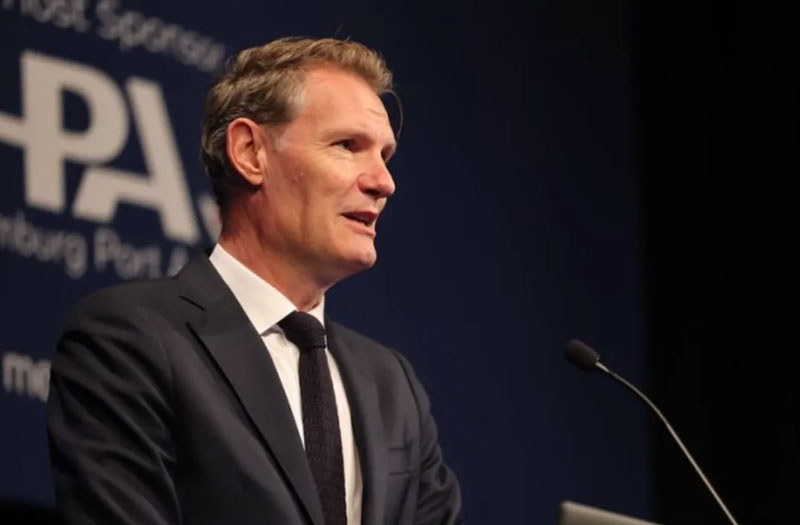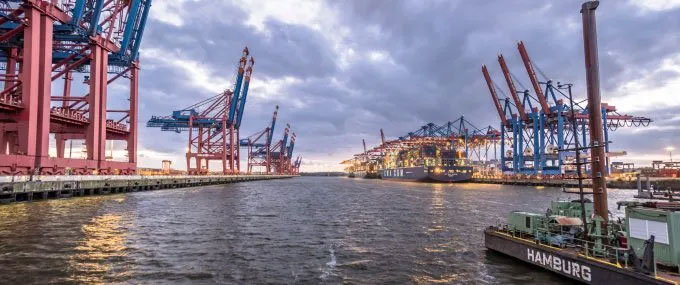

MSC CEO: The future is more inclined to choose a wider range of port calls
At the opening of the International Association of Ports' (IAPH) annual World Ports Conference, Soren Toft, CEO of MSC, shared his views on the future of supply chain development.
He predicts that with the changes in the global supply chain, cargo owners will be more inclined to choose a wider range of port calls in the future, rather than just looking for speed.
Soren Toft mentioned that MSC's newly released Independent Service Network 2025 reflects the changing supply chain landscape. "Instead of relying on just a few countries or a few major markets, today's supply chains are much more fragmented," he explains. So our network needs to cover more ports to cope with this change."
He further said that this shift does not mean that factors of production will return to the United States, for example, he does not expect the United States to make its own cups and toys. Instead, MSC chose to operate independently because it had enough ships and wanted to adjust quickly when the global market changed.
Soren Toft also stressed that uncertainty in the global supply chain has increased, and "black swan" events may occur at any time and must be prepared at all times. To address these challenges, MSC has expanded its port coverage.
"For example, on the Asia-Northern Europe route, MSC will cover 12 Asian ports compared to nine for its competitors; In Europe, MSC will call at 13 ports, compared with seven of its competitors."
He explained that MSC will offer a portfolio of 1,900 ports because customers want more certainty of reaching their destination than pure speed of transport.
This strategy is also reflected in the company's investments in ports and terminals, he added. "These ports are like 'pit stops' for Formula 1 cars, and if we can save an hour or two on port operations, it will increase the efficiency of the entire logistics network."
Soren Toft said the move will have a profound impact on the future development of the Port of Hamburg: "We are very pleased to be working with the City of Hamburg to promote the development of HHLA. This year we have added routes from Asia to Hamburg and we have seen double digit growth in cargo volumes."
In addition, Soren Toft called on the International Maritime Organization (IMO) to accelerate the development of regulations for the decarbonization process.
He stressed that the shipping industry needs to be regulated by truly global regulations, rather than independent regulations for each region. He also said that the main challenge of decarbonizing is the supply of fuel. "That's why we chose LNG. It is a readily available fuel and lays the foundation for the future use of more environmentally friendly synthetic LNG."
Currently, MSC has invested more than $20 billion in dual-fuel vessels, demonstrating its commitment to environmental sustainability.
Through these strategic positions, MSC aims to remain flexible and competitive in the ever-changing environment of the global supply chain.
He predicts that with the changes in the global supply chain, cargo owners will be more inclined to choose a wider range of port calls in the future, rather than just looking for speed.

Soren Toft, CEO of Mediterranean Shipping
Soren Toft mentioned that MSC's newly released Independent Service Network 2025 reflects the changing supply chain landscape. "Instead of relying on just a few countries or a few major markets, today's supply chains are much more fragmented," he explains. So our network needs to cover more ports to cope with this change."
He further said that this shift does not mean that factors of production will return to the United States, for example, he does not expect the United States to make its own cups and toys. Instead, MSC chose to operate independently because it had enough ships and wanted to adjust quickly when the global market changed.
Soren Toft also stressed that uncertainty in the global supply chain has increased, and "black swan" events may occur at any time and must be prepared at all times. To address these challenges, MSC has expanded its port coverage.
"For example, on the Asia-Northern Europe route, MSC will cover 12 Asian ports compared to nine for its competitors; In Europe, MSC will call at 13 ports, compared with seven of its competitors."
He explained that MSC will offer a portfolio of 1,900 ports because customers want more certainty of reaching their destination than pure speed of transport.
This strategy is also reflected in the company's investments in ports and terminals, he added. "These ports are like 'pit stops' for Formula 1 cars, and if we can save an hour or two on port operations, it will increase the efficiency of the entire logistics network."

Soren Toft said the move will have a profound impact on the future development of the Port of Hamburg: "We are very pleased to be working with the City of Hamburg to promote the development of HHLA. This year we have added routes from Asia to Hamburg and we have seen double digit growth in cargo volumes."
In addition, Soren Toft called on the International Maritime Organization (IMO) to accelerate the development of regulations for the decarbonization process.
He stressed that the shipping industry needs to be regulated by truly global regulations, rather than independent regulations for each region. He also said that the main challenge of decarbonizing is the supply of fuel. "That's why we chose LNG. It is a readily available fuel and lays the foundation for the future use of more environmentally friendly synthetic LNG."
Currently, MSC has invested more than $20 billion in dual-fuel vessels, demonstrating its commitment to environmental sustainability.
Through these strategic positions, MSC aims to remain flexible and competitive in the ever-changing environment of the global supply chain.





